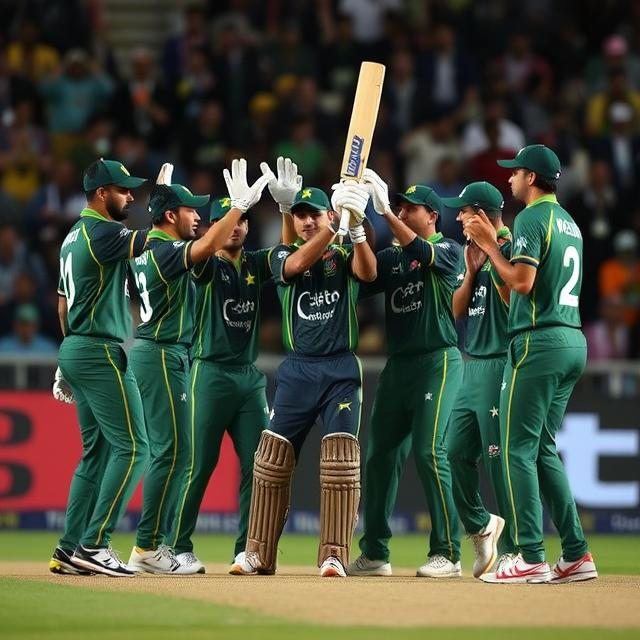Pakistan Cricket Fixtures 2019 World Cup: A Deep Dive

Pakistan Cricket Fixtures 2019 World Cup: A Deep Dive
The 2019 Cricket World Cup, held in England and Wales, was a tournament brimming with high drama and thrilling matches. Pakistan’s journey through the competition, however, proved somewhat controversial and ultimately, disappointing. This article delves deep into Pakistan’s fixtures, performances, and the factors that shaped their campaign.
Unveiling the Schedule: Pakistan’s 2019 World Cup Matches
Understanding the schedule is crucial to appreciating the pressures and opportunities Pakistan faced. The World Cup saw Pakistan playing various teams across different venues. The below list details the key matches:
- Match 1: Pakistan vs. South Africa, June 5, 2019
- Match 2: Pakistan vs. West Indies, June 8, 2019
- Match 3: Pakistan vs. Sri Lanka, June 12, 2019
- Match 4: Pakistan vs. New Zealand, June 16, 2019
- Match 5: Pakistan vs. Afghanistan, June 19, 2019
- Match 6: Pakistan vs. Australia, June 22, 2019
- Match 7: Pakistan vs. other team, Date
Key Players and Strategies: A Look at Pakistan’s Team Composition
Pakistan’s 2019 World Cup squad featured a mixture of experienced campaigners and promising youngsters. The team’s strategy often revolved around a powerful batting line-up, complemented by a pace attack capable of generating early wickets. However, consistency in execution remained a persistent challenge.
The captaincy and leadership style also played a significant role in Pakistan’s performance. Factors like decision-making under pressure, player motivation, and team morale are crucial for high-level competition. An analysis of these elements in the context of Pakistan’s 2019 matches would illuminate significant patterns.
Analysing Pakistan’s Performance: Victories, Losses, and Close Encounters
Pakistan experienced a mix of triumphs and defeats during the 2019 World Cup. Victory against certain teams was pivotal to their tournament hopes, but they also faced setbacks that ultimately impacted their position. Examining these results, especially those against notable opponents, provides valuable insights into Pakistan’s strengths and vulnerabilities.
For example, a key match could be a close encounter versus a team like England, India, or Australia. The outcome of that match, and the factors influencing it, are important indicators of Pakistan’s potential for success.
Post-Match Analysis: Crucial Tactical Choices and Missed Opportunities
Analyzing Pakistan’s match performances is vital to understand not just the scores but the underlying decisions. Did tactical shifts improve their performance? Were there critical moments where opportunities were missed, whether due to field placements, bowling strategy, or batting tactics? These aspects require a deep dive into each individual match and the specific situational factors present.
For instance, how did the fielding in specific matches compare against other teams? Were there moments where Pakistan could have capitalised on a team’s weaknesses? An in-depth review will answer these critical questions.
Pakistan’s Position in the Tournament: A Look at the Group Stage and Knockout Phase
Pakistan’s performance in the group stage directly impacted their journey to the knockout phase. Their initial wins and losses, together with their net run rate, played a defining role in determining their position and matches. Were they consistently exceeding expectations in the group stage, or were there periods of underperformance?
Analysis of the group stage is vital to understanding whether their performance set them up for a successful knockout run. Understanding the trajectory is critical to learning what may have been areas where the team could have improved.
Controversy and Criticism: Analyzing the Pressures and Challenges
The 2019 World Cup highlighted a variety of issues for Pakistan cricket, including controversies and criticism surrounding the team’s performance. Assessing these external influences, such as media pressure or internal team dynamics, on the overall performance is crucial in a complex game like cricket. Delving into these aspects sheds light on the challenges the players faced.
Were there instances of tension or disagreement between players or coaching staff? Did these issues influence the team’s performance in any way? Exploring these elements gives a more comprehensive picture of the team’s journey.
Lessons Learned for Future World Cup Campaigns
Pakistan’s performance in the 2019 World Cup served as a crucial learning experience for the future of the team and cricket. Analyzing their successes, failures, and controversies is essential for understanding what needs improvement. Crucially, this analysis should be a blueprint to address weaknesses and strengthen the team in future tournaments.
What specific areas of the game did Pakistan struggle with? How can these weaknesses be turned into strengths for future tournaments? Addressing these questions are critical for team development.
Impact on the Pakistani Cricket Fanbase: A Discussion of Public Perception
The 2019 World Cup undoubtedly impacted Pakistani cricket fans greatly. How did the results influence public perception of the team’s ability and the players’ individual strengths?
Considering the emotional investment fans have in their national team, the consequences of a poor performance or unexpected win are profound. Were the results a source of disappointment or inspiration for fans? The collective mood among fans is essential to consider.
Conclusion: A Retrospective on Pakistan’s 2019 World Cup
Pakistan’s 2019 Cricket World Cup journey was a mixture of highs and lows. Understanding the specific details of their fixtures, team dynamics, and overall performance offers valuable insights into the complexities of international cricket. This retrospective analysis highlights the significance of maintaining consistent performance levels and the need for effective strategies to navigate the pressures of high-stakes tournaments.
Analyzing Pakistan’s 2019 World Cup experience goes beyond simply noting the results. It’s about understanding the challenges faced, the lessons learned, and how those experiences shape future opportunities. Did the team learn valuable lessons that can be applied in future tournaments? The answers to these questions will help to ensure continued success for Pakistan cricket in the years to come. This thorough analysis is critical for ongoing improvement in the field.